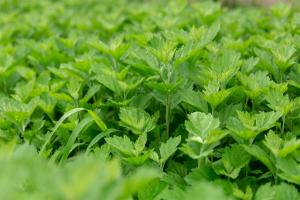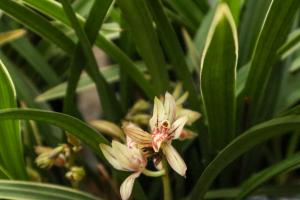Can You Water Plants with Pool Water?
As an avid pool owner, you may be surprised to learn that pool water can actually be used to water your plants. However, before you start pouring pool water on your greenery, there are some important considerations to keep in mind.
The Chemical Composition of Pool Water
Pool water is typically treated with chemicals to maintain proper pH levels and prevent the growth of algae and bacteria. Chlorine is the most commonly used chemical for this purpose, but other chemicals may also be used depending on the pool's specific needs.
While these chemicals are necessary for keeping your pool clean and safe for swimming, they can be harmful to plants if they are not properly diluted. In high concentrations, chlorine can burn leaves and make them turn brown. Additionally, other chemicals used in pool maintenance may contain heavy metals, which can also be harmful to plants.
Properly Diluting Pool Water
If you want to use your pool water to water your plants, the key is to properly dilute the water to reduce the concentration of chemicals. The general rule of thumb is to dilute the pool water by at least 50% with fresh water. This will help to ensure that the water is not too strong for your plants.
It's important to note that if you have recently shocked your pool or added other chemicals, you should wait for a few days before using the water on your plants. This will give the chemicals time to dissipate and reduce the likelihood of harming your greenery. In addition, you should avoid using pool water on edible plants, as they may absorb the chemicals and become unsafe to eat.
The Benefits of Using Pool Water on Plants
Despite the need for caution when using pool water on plants, there are some benefits to consider. For one, using pool water for irrigation can help to conserve water. During the hot summer months, when many people are using their pool regularly, water can quickly become a precious resource. By using pool water on your plants, you can help to reduce your overall water usage.
In addition, chlorine can actually be beneficial to some plants in small amounts. It can help to prevent the growth of bacteria and fungi on the plants and in the soil, which can lead to disease. However, it's important to note that this is only true in small doses, and if the concentration of chlorine is too high it can be harmful to plants.
Conclusion
In summary, using pool water to water your plants can be a good way to conserve water and provide some added benefits to your greenery. However, it's important to keep in mind the potential risks and to properly dilute the water to reduce the concentration of chemicals. By following these guidelines, you can enjoy the benefits of using pool water while keeping your plants healthy and safe.

 how many times do yo...
how many times do yo... how many planted tre...
how many planted tre... how many pine trees ...
how many pine trees ... how many pecan trees...
how many pecan trees... how many plants comp...
how many plants comp... how many plants can ...
how many plants can ... how many plants and ...
how many plants and ... how many pepper plan...
how many pepper plan...































